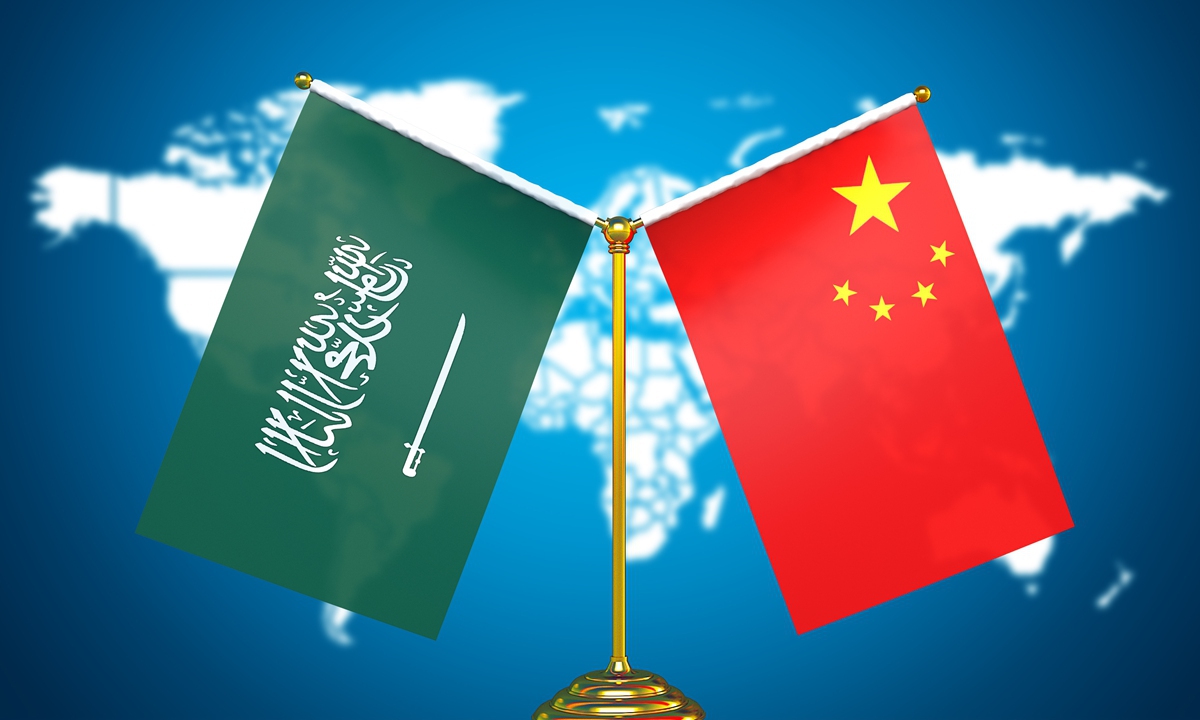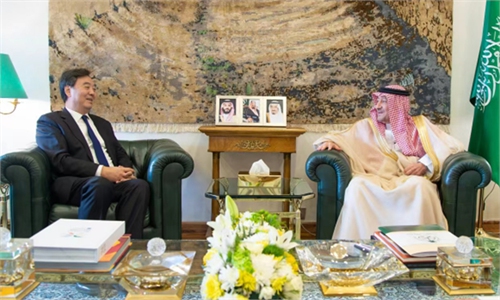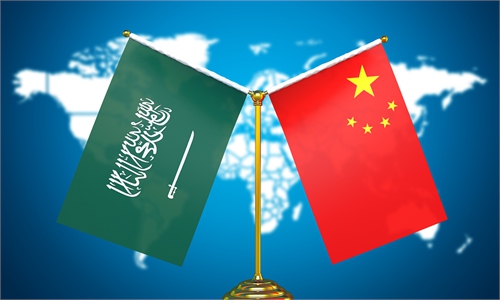
China, Saudi Arabia photo:VCG
It is no secrecy that China-Saudi Arabia economic and trade cooperation is deepening at an unusual speed. This is of great significance not only for the two sides to expand their economic development space but also for the peaceful development of the Middle East.Huatai-PineBridge Investments has submitted documents for establishing the Huatai-PineBridge CSOP Saudi Arabia exchange-traded fund (ETF), the Chinese mainland's first ETF focused on the Saudi stock market, Chinese media outlets reported on Thursday, citing information from the China Securities Regulatory Commission. The Huatai-PineBridge CSOP Saudi Arabia ETF will indirectly invest in the Saudi stock market through the Hong Kong Stock Exchange-listed CSOP Saudi Arabia ETF.
The development marks the latest sign of progress made in deepening economic and trade cooperation between China and Saudi Arabia. This week alone saw the signing of more than 60 memorandums of understanding and agreements covering sectors such as energy, agriculture, tourism, mining and financial services, valued at $25 billion, during the China-Saudi Investment Conference held on Tuesday in Beijing, according to media reports.
The day before the conference, the Shenzhen Stock Exchange and Saudi Arabia's stock exchange signed a memorandum of understanding to enhance collaboration and explore new opportunities in several areas, including joint listings and fintech.
Saudi Arabia is one of the best in terms of economic performance in the Middle East. Its per capita GDP is $32,590 in 2023, with its GDP at $1.07 trillion, according to IMF data.
To a certain extent, its experience and choices in regard to economic development are worthy of reference for other countries in the region.
Economic cooperation between China and Saudi Arabia has always been stable and mutually beneficial. Statistics show that China has been Saudi Arabia's largest trading partner over the past decade, while Saudi Arabia has been China's largest trading partner in the Middle East for about 20 years. In 2022, bilateral trade exceeded $116 billion, growing by more than 30 percent year-on-year. Oil trade has always been an important part of their cooperation, bringing stable oil revenues to Saudi Arabia and ensuring the stability of China's oil supply chain.
Such cooperation, which has moved beyond oil trade and toward more comprehensive development, has grown even more rapidly amid changes in the world economy, geopolitics and environment. This results from the strong complementarities between the economic structures of China and Saudi Arabia. The two sides are ready to exchange their mutual advantages for their own development needs, which is an important foundation for their close economic relationship.
Against the backdrop of the US "decoupling" push and growing protectionism in the West, the Middle East is becoming a key region for China in terms of expanding international trade and enhancing its economic resilience against Western sanctions and pressure. In this sense, China's deepening cooperation with Saudi Arabia, the largest economy in the Middle East, is a crucial part of such efforts.
As for Saudi Arabia, close cooperation with China in more fields, especially in green industry and the digital economy, is conducive to its own long-term development. With global attention to climate change, it is imperative for Saudi Arabia to push forward with its economic transformation and clean-energy development. China has the technology and capability to offer help in this regard. So there is huge potential for the stable and long-term development of clean-energy cooperation. This is also why Saudi Arabia's investment minister called for further facilitation of green transition collaboration with Chinese companies in Beijing on Tuesday, according to media reports.
Strengthened economic relations between China and Saudi Arabia are conducive to each other's development, as well as regional stability in the Middle East. As a major cause of geopolitical instability in the region is believed to be a lack of development, the pursuit of more regional economic cooperation could be an important approach to reduce conflicts and create favorable conditions for peaceful development.



